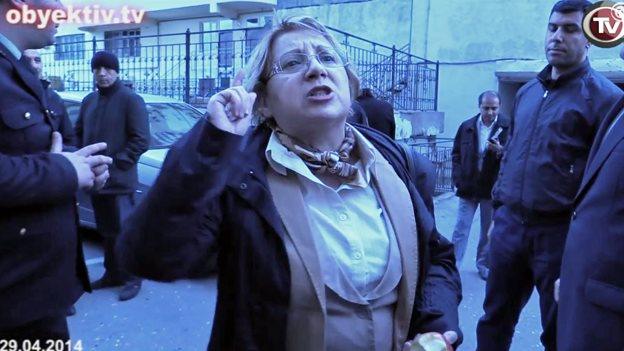Azerbaijan jails rights activists Leyla and Arif Yunus
- Published
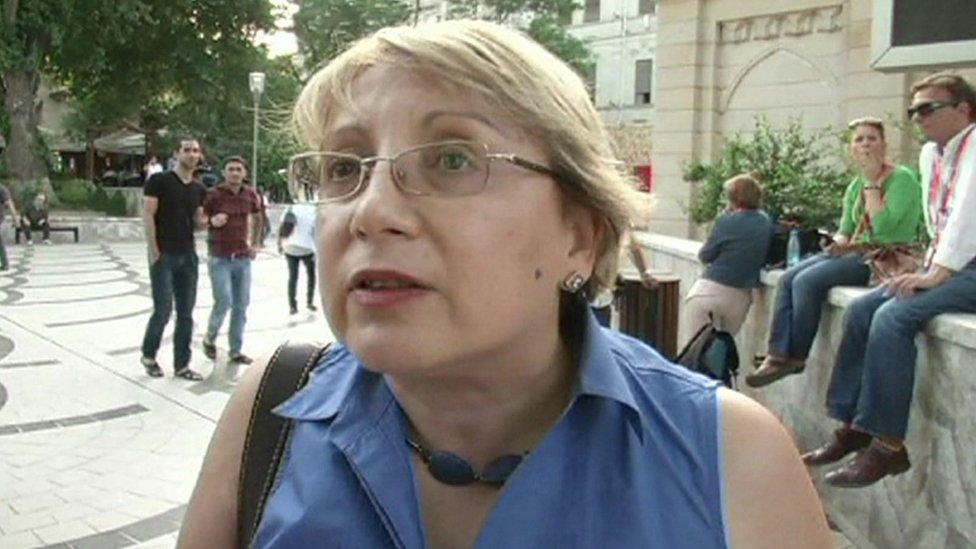
Leyla Yunus and her husband have spent years campaigning for human rights in Azerbaijan
A prominent human rights activist in Azerbaijan, Leyla Yunus, has been sentenced to eight-and-a-half years in prison for fraud and tax evasion.
Her husband, Arif Yunus, was given seven years on similar charges. They have been in prison since their arrest nearly a year ago.
Both still face separate charges of treason, which carries a life sentence.
The couple say the case was politically motivated. Azerbaijan has repeatedly jailed human rights activists.
President Ilham Aliyev has ruled Azerbaijan since 2003 and has cracked down hard on political opponents.
Both Leyla, 59, and Arif Yunus are in poor health - she has diabetes and hepatitis C, while he has a heart condition and has suffered two strokes.
US-based Human Rights Watch condemned their prosecution, external as a "despicable political show trial".
Levan Asatiani, an Azerbaijan researcher at Amnesty International, said "the judicial system has once again revealed itself to be no more than a cynical tool by which President Ilham Aliyev crushes any dissent".
Peace efforts
In a statement to the BBC the Azerbaijan government said the court process in the case was "open and free". It also said "the independence of judiciary and the rule of law have been fully guaranteed" in Azerbaijan.
Leyla Yunus was found guilty of fraud, illegal entrepreneurship, tax evasion and falsifying official documents.
She is director of the Institute for Peace and Democracy, a human rights group founded in 1995. It has worked with the Council of Europe - Europe's leading human rights watchdog - and other international bodies, informing them about actions to stifle political dissent in Azerbaijan.
Mrs Yunus had been pressing for reconciliation between oil-rich Azerbaijan and neighbouring Armenia, to defuse their frozen conflict over Nagorno-Karabakh.
Armenian forces took control of the disputed territory in 1994 soon after the break-up of the Soviet Union. But sporadic clashes continue between them and nearby Azeri forces.
(Update 20 August: This article was amended to add the official viewpoint of the Azerbaijan government.)
- Published10 June 2015
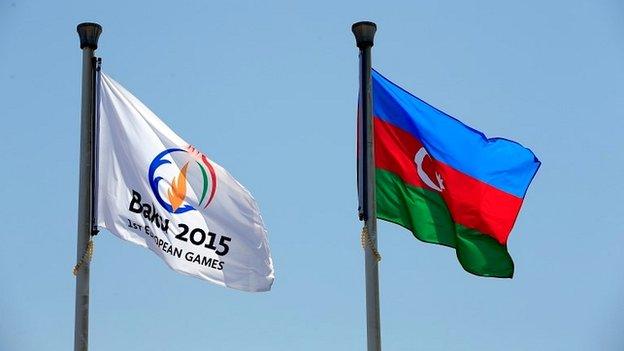
- Published17 February 2015
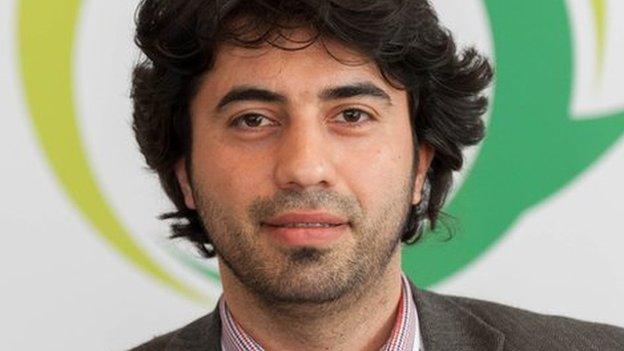
- Published13 February 2024
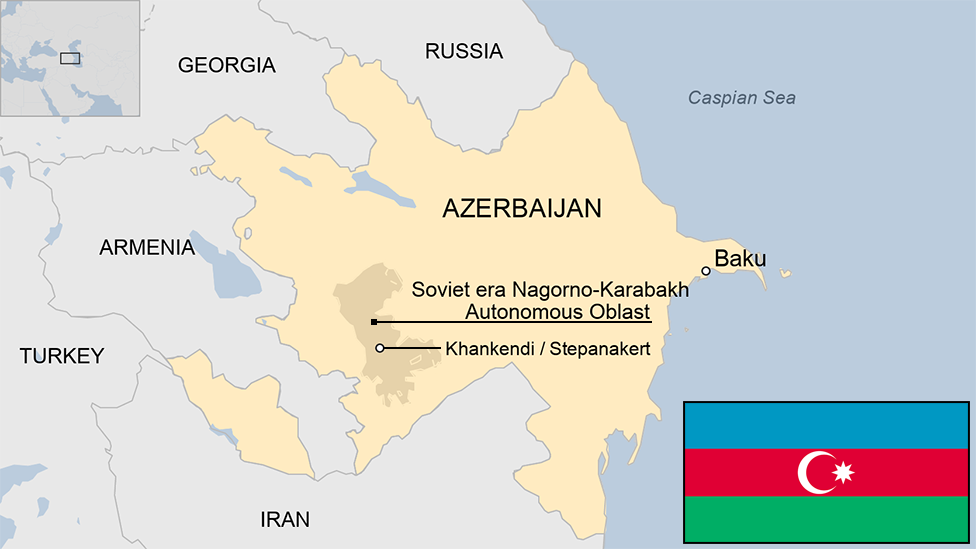
- Published29 April 2014
